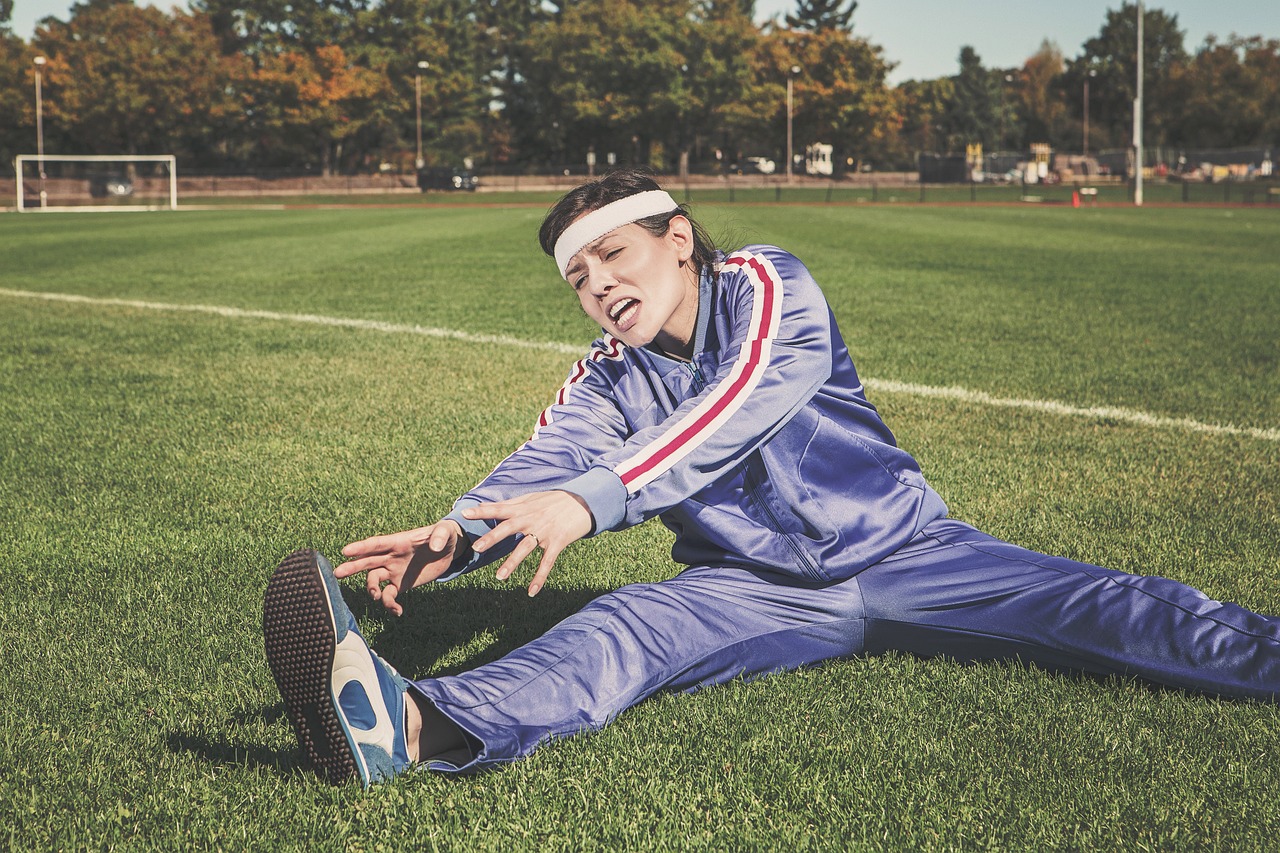Introduction
Sports have long been celebrated for their ability to entertain, inspire, and unite people. But beyond the excitement of competition and the thrill of victory, sports hold a profound impact on both physical and mental well-being. In this comprehensive overview, we’ll delve into the multifaceted ways in which sports contribute to a healthier and happier life.
The world of sports, with its kaleidoscope of activities and events, offers a rich tapestry of benefits that extend far beyond the boundaries of the playing field. Beyond the cheers of the crowd and the pursuit of athletic excellence, sports have a profound and multifaceted impact on physical, mental, and emotional well-being. Let’s explore the numerous ways in which sports enhance our lives and contribute to overall health and happiness:
Physical Fitness: Sports are a gateway to physical fitness and well-being. Engaging in sports activities builds strength, stamina, and agility. Regular participation in sports helps maintain a healthy weight, reduce the risk of chronic illnesses like heart disease, and improve overall cardiovascular health. Whether it’s a sprint on the track, a tennis match, or a soccer game, sports provide an enjoyable way to stay active and fit.
Mental Health: Sports play a pivotal role in promoting mental health and emotional well-being. Physical activity releases endorphins, which are natural mood lifters. Engaging in sports activities can help reduce stress, anxiety, and symptoms of depression. Moreover, the camaraderie and social interactions fostered by team sports can alleviate feelings of isolation and loneliness.
Discipline and Goal Setting: Participation in sports instills valuable life skills such as discipline, time management, and goal setting. Athletes learn the importance of setting goals, working diligently toward them, and persevering in the face of challenges. These qualities are transferable to various aspects of life, including education, career, and personal development.
Teamwork and Communication: Team sports, in particular, emphasize the significance of teamwork, communication, and cooperation. Athletes must work harmoniously with teammates, communicate effectively, and understand the importance of their individual roles within the larger team dynamic. These skills translate to improved interpersonal relationships and collaboration in other aspects of life.
Self-Esteem and Confidence: Achievements in sports, whether big or small, boost self-esteem and confidence. Overcoming obstacles, setting personal records, and mastering new skills provide a sense of accomplishment that transcends the playing field. This heightened self-confidence can positively impact professional and personal life, enabling individuals to pursue their goals with greater self-assuredness.
Resilience and Adaptability: Sports teach resilience and adaptability in the face of adversity. Athletes encounter setbacks, losses, and challenges, which require them to bounce back, adapt, and persevere. These experiences build mental toughness and the ability to cope with life’s ups and downs.
Social Bonds: Sports foster a sense of community and belonging. Whether as a spectator or a participant, sports events bring people together, creating bonds and shared experiences. Team sports, in particular, provide opportunities to forge lifelong friendships and support networks.
Lifelong Enjoyment: One of the greatest gifts of sports is their potential to provide enjoyment throughout life. Unlike some activities that may have age limitations, sports can be adapted to suit various stages of life. Whether it’s a friendly game of golf, a leisurely swim, or a casual jog in the park, sports offer a lifetime of recreational opportunities.
Inspiration and Role Models: Sports provide a platform for individuals to look up to and be inspired by athletes who demonstrate dedication, perseverance, and sportsmanship. These role models can inspire individuals to pursue their own goals and overcome challenges with grace and determination.
In conclusion, the world of sports is a treasure trove of physical, mental, and emotional benefits. Beyond entertainment and competition, sports contribute significantly to a healthier and happier life. They shape us physically, emotionally, and mentally, instilling qualities and values that resonate far beyond the realm of athletic endeavors. Whether you’re a seasoned athlete or simply enjoy the occasional game with friends, the world of sports is a powerful catalyst for personal growth, well-being, and the celebration of the human spirit.
Additionally, you can find further information on this topic by visiting this page: An introduction to Mind, Body and Sport – NCAA.org
One of the most obvious benefits of sports is physical fitness. Engaging in sports activities promotes cardiovascular health, strengthens muscles and bones, and enhances overall physical well-being. Regular exercise through sports helps manage weight, reduce the risk of chronic diseases like diabetes and heart disease, and improves longevity.
nullFor additional details, consider exploring the related content available here Role of Physical Activity on Mental Health and Well-Being: A Review …

Sports aren’t just about moving your body; they also stimulate your mind. Physical activity triggers the release of endorphins, often referred to as “feel-good” hormones. These endorphins help alleviate stress, anxiety, and depression, promoting a positive mood and a sense of well-being.
Indeed, the benefits of sports extend far beyond physical fitness, reaching into the realm of mental and emotional well-being. Let’s delve deeper into how engaging in sports and physical activity becomes a holistic wellness practice:
Enhanced Cognitive Function: Sports engage both your body and mind, requiring strategy, quick decision-making, and spatial awareness. Regular participation in sports can sharpen your cognitive abilities, improving focus, problem-solving skills, and memory.
Stress Reduction: The release of endorphins during physical activity is a powerful antidote to stress. Engaging in sports provides an effective outlet for the pressures of daily life, allowing you to let off steam and reduce stress levels. This can lead to improved mental clarity and resilience in the face of challenges.
Emotional Regulation: Sports provide a structured environment for emotional expression. Whether you’re celebrating a victory, venting frustration, or overcoming setbacks, sports offer a healthy outlet for processing emotions and developing emotional intelligence.
Social Connection: Team sports, in particular, foster a sense of community and social connection. Being part of a sports team promotes camaraderie, teamwork, and the development of interpersonal skills, which are essential for maintaining positive relationships in all areas of life.
Self-Esteem and Confidence: Achieving personal milestones and improving your performance in sports can boost self-esteem and confidence. These positive self-perceptions often spill over into other aspects of life, empowering you to tackle challenges with a can-do attitude.
Mood Elevation: The endorphins released during physical activity contribute to a positive mood. Regular participation in sports can help alleviate symptoms of anxiety and depression, making it a valuable tool for mental health maintenance and recovery.
Goal Setting and Achievement: Sports encourage goal setting and the pursuit of excellence. Setting and achieving goals in sports can translate to a greater sense of purpose and accomplishment in everyday life, fostering a growth mindset.
Resilience Building: Sports teach resilience by exposing you to both victories and defeats. Learning how to cope with losses and bounce back from setbacks in sports equips you with valuable life skills for dealing with adversity.
Mindfulness and Flow: Engaging in sports often leads to a state of mindfulness, where you are fully present in the moment. This sense of flow can provide relief from overthinking and promote mental clarity.
Life Balance: Sports encourage a balanced lifestyle. Regular physical activity can help regulate sleep patterns, improve energy levels, and promote overall well-being, contributing to a more balanced and fulfilling life.
In essence, sports are a holistic wellness practice that intertwines physical, mental, and emotional dimensions of well-being. Whether you’re a dedicated athlete or someone who enjoys recreational activities, the benefits of sports extend beyond the playing field, enriching your life in countless ways. Sports provide a pathway to holistic health, where a strong body is complemented by a resilient mind and a joyful spirit.
Looking for more insights? You’ll find them right here in our extended coverage: Role of Physical Activity on Mental Health and Well-Being: A Review …

Participating in sports offers a healthy outlet for stress relief. The physical exertion involved in sports helps reduce the levels of stress hormones in your body, leading to a more relaxed and calm state of mind. The focus required during sports can also serve as a temporary escape from everyday worries.
Participating in sports is not just about physical activity; it’s a powerful and holistic approach to stress relief that can have profound effects on your overall well-being. Here’s how engaging in sports offers an effective way to manage stress:
1. Physical Release of Stress: Sports involve vigorous physical exertion, which triggers the release of endorphins—the body’s natural stress relievers. These “feel-good” hormones counteract the stress hormones like cortisol, helping to alleviate tension and promote a sense of well-being. The rhythmic movement, whether it’s running, swimming, or cycling, can feel meditative and soothing, further reducing stress.
2. Enhanced Mental Resilience: Engaging in sports requires concentration and mental discipline. As you focus on the game or activity at hand, you divert your attention away from stressful thoughts and concerns. This mental engagement not only offers a temporary reprieve from stress but also strengthens your ability to manage it in everyday life. You develop mental resilience and a sense of control that can help you navigate stressors more effectively.
3. Social Support: Many sports are team-based, fostering a sense of camaraderie and social connection. The support and encouragement from teammates and the shared goals create a strong sense of belonging. Social support is a vital buffer against stress, as it provides emotional outlets and a network of individuals who can empathize and offer guidance during challenging times.
4. Mind-Body Balance: Engaging in sports promotes a harmonious balance between your mind and body. This integration is essential for stress management because it helps you become more attuned to your body’s signals. You learn to recognize the physical manifestations of stress, such as muscle tension or shallow breathing, and can respond with relaxation techniques like deep breathing and mindfulness to counteract them.
5. Time Management: Sports require commitment and discipline, which often leads to better time management. When you allocate time for sports in your schedule, you create a structured routine that can reduce the chaos and stress associated with disorganization. This improved time management spills over into other areas of your life, allowing you to better balance work, personal life, and relaxation.
6. Improved Sleep: Regular physical activity through sports can contribute to better sleep quality. A well-rested body is better equipped to cope with stress, as sleep is essential for mental and emotional resilience. Sports can help regulate your sleep patterns, reduce insomnia, and enhance the restorative benefits of sleep.
In conclusion, sports offer a holistic approach to stress relief, addressing both the physical and mental aspects of well-being. Engaging in sports provides a positive outlet for pent-up stress, enhances mental resilience, fosters social connections, and promotes a balanced mind-body relationship. So, whether you’re sprinting down a track, shooting hoops, or practicing yoga, sports can be a powerful antidote to the pressures of modern life, helping you achieve a more relaxed and balanced state of mind.
For additional details, consider exploring the related content available here Stress Management For Disaster and Emergency Responders …

Engaging in sports is not just beneficial for the body; it also enhances cognitive function. Sports require strategic thinking, quick decision-making, and concentration. These mental exercises can boost brain health, sharpen reflexes, and improve memory.
Participating in sports isn’t solely about physical fitness; it’s also a dynamic mental workout that offers a multitude of cognitive advantages. Engaging in sports demands a synergy of physical prowess and mental acumen, shaping a well-rounded individual. Here’s how the cognitive benefits of sports extend far beyond the playing field:
1. Strategic Thinking: Sports often involve intricate strategies and tactics. Whether it’s a game of chess, tennis, or soccer, participants must anticipate their opponents’ moves, adapt to changing situations, and devise clever strategies to gain an edge. This strategic thinking not only enhances problem-solving skills but also cultivates a tactical mindset that can be applied in various life situations.
2. Quick Decision-Making: In the fast-paced arena of sports, split-second decisions can make all the difference. Athletes must assess situations rapidly, deciding whether to pass the ball, change direction, or take a shot. This quick decision-making under pressure improves cognitive agility and the ability to make informed choices in high-stress situations.
3. Concentration and Focus: Sports require intense concentration and unwavering focus. Athletes must stay fully engaged in the game, monitoring their surroundings, teammates, and opponents simultaneously. This level of concentration fosters improved attention span, an invaluable skill in both sports and everyday life.
4. Memory Enhancement: Sports often involve memorizing plays, tactics, and opponents’ strategies. Athletes must recall these details in real-time, which enhances their memory capacity and ability to retain information. This improvement in memory extends to academic and professional pursuits as well.
5. Emotional Resilience: Handling wins and losses in sports develops emotional resilience. It teaches individuals to manage stress, cope with disappointment, and maintain composure under pressure. This emotional fortitude carries over to other aspects of life, fostering a more balanced and resilient mindset.
6. Coordination and Motor Skills: Sports demand precise coordination between the mind and body. Athletes must execute complex movements, such as dribbling a basketball or executing a graceful gymnastics routine. This synchronization enhances fine and gross motor skills, improving overall coordination.
7. Teamwork and Communication: Many sports are team-based, requiring effective communication and collaboration. Athletes learn how to convey ideas, coordinate actions, and adapt to their teammates’ styles. These interpersonal skills are invaluable in professional and social settings.
8. Goal Setting: Sports often involve setting goals and striving for improvement. Athletes establish personal benchmarks and work diligently to achieve them. This goal-oriented mindset transcends sports, motivating individuals to set and pursue goals in their personal and professional lives.
9. Stress Reduction: Engaging in sports is an excellent stress reliever. The endorphins released during physical activity reduce stress and anxiety, promoting mental well-being and a positive outlook.
In conclusion, sports are not merely physical exercises; they are powerful cognitive workouts that sculpt agile minds. The strategic thinking, quick decision-making, and intense concentration required in sports sharpen mental faculties and promote cognitive health. So, whether you’re dribbling a soccer ball, swinging a tennis racket, or shooting hoops, remember that you’re not only honing your athletic skills; you’re also nurturing a sharp and resilient mind that can excel in various life pursuits.
Additionally, you can find further information on this topic by visiting this page: Physical Activity and Cognitive Functioning of Children: A …

Team sports, in particular, foster social connections and a sense of community. Playing on a team builds camaraderie, cooperation, and a strong sense of belonging. The friendships formed through sports can last a lifetime and contribute to emotional well-being.
nullFor a comprehensive look at this subject, we invite you to read more on this dedicated page: Physical Activity and Sports—Real Health Benefits: A Review with …

Achievements in sports, whether big or small, boost self-esteem and confidence. Setting and achieving personal goals, improving skills, and overcoming challenges in sports activities translate into a sense of accomplishment that carries over into other aspects of life.
The arena of sports is not merely a battleground for physical prowess; it’s a powerful crucible where self-esteem and confidence are forged. Whether you’re conquering a massive milestone or achieving a small, personal victory, the impact on your self-perception is profound. Here’s how achievements in sports, big and small, become stepping stones to elevated self-esteem and unshakeable confidence that extend far beyond the playing field:
1. Setting and Conquering Personal Goals: In sports, setting goals is a fundamental aspect of progress. Whether it’s running an extra mile, lifting more weight, or perfecting a specific technique, the act of establishing and accomplishing these objectives instills a sense of control and direction in your life.
2. Skill Improvement as a Measure of Growth: Sports demand dedication and practice to enhance your skills continually. As you invest time and effort into refining your abilities, the tangible progress becomes a testament to your commitment and capability for growth. This improvement fuels confidence not just in sports but in facing life’s challenges.
3. Overcoming Adversity and Challenges: Every athlete encounters obstacles, setbacks, and moments of doubt. These challenges are not roadblocks but stepping stones. Successfully navigating them reinforces the belief that you can tackle adversity head-on and emerge stronger. This resilience is invaluable in life’s trials.
4. The Taste of Victory: Winning, even in a small competition, delivers an exhilarating rush of confidence. It’s a reminder that hard work and determination lead to success. This confidence gained from victories infuses you with the belief that you can overcome obstacles and triumph in other endeavors.
5. The Wisdom of Defeat: Sports also teach us the humility of defeat. Learning to accept losses with grace and using them as learning opportunities is a testament to your maturity and adaptability. It reinforces the notion that setbacks are not permanent, and failure can be a stepping stone to future success.
6. Physical Fitness and Well-Being: The physical benefits of sports cannot be underestimated. A healthy body leads to a healthy mind. Feeling fit and energetic enhances self-esteem, as it aligns with a sense of vitality and capability.
7. Building a Supportive Community: Team sports, in particular, foster a sense of belonging and camaraderie. The bonds formed with teammates and coaches provide an invaluable support system that extends beyond sports. The knowledge that you have a network of people who believe in you bolsters self-esteem.
8. The Transfer Effect to Other Aspects of Life: Perhaps the most remarkable aspect of sports achievements is their transferability. The self-assuredness and resilience developed in sports permeate other domains of your life—academics, career, relationships, and personal growth. It’s the realization that if you can conquer a challenging trail or score a winning goal, you have the inner strength to tackle life’s complexities.
In conclusion, sports achievements are not confined to the scoreboard or medals. They are an embodiment of your determination, resilience, and belief in yourself. Whether you’re a professional athlete or an amateur enthusiast, the self-esteem and confidence cultivated through sports are invaluable life assets. They empower you to set audacious goals, face adversity with grace, and embark on life’s journey with unwavering self-assurance. So, lace up those sneakers or pick up that racket, for in sports, you are not just honing your physical prowess; you are forging an indomitable spirit that can conquer any challenge life throws your way.
Looking for more insights? You’ll find them right here in our extended coverage: What Is Self-Efficacy Theory? (Incl. 8 Examples & Scales)

Participating in sports requires discipline and time management. Athletes learn to balance their training schedules with other commitments, fostering good habits that can be applied to academic, professional, and personal life.
Participating in sports is not just about physical prowess; it’s a lesson in discipline and time management that can have a profound impact on various aspects of life. Athletes, whether they’re young students or seasoned professionals, develop a set of skills and habits through sports that extend far beyond the playing field.
**1. Effective Time Management:
Sports demand a structured schedule. Athletes must allocate time for practice sessions, physical conditioning, and competitions. This discipline in time management translates into effective time utilization in other areas of life. Athletes become skilled at setting priorities, meeting deadlines, and making the most of the hours in a day.
**2. Goal Setting and Achievement:
Every athlete sets goals, whether it’s improving their personal best in a particular event or achieving victory in a championship. This goal-setting process is a valuable skill that can be applied to academic pursuits, professional endeavors, and personal life aspirations. Athletes understand the importance of setting clear, achievable objectives and working diligently toward them.
**3. Resilience and Perseverance:
Sports are rife with challenges, setbacks, and failures. Athletes learn firsthand that success often involves facing adversity and pushing through difficult times. This resilience, cultivated on the field, carries over into academic studies and professional life. It helps individuals weather challenges with determination and a positive outlook.
**4. Teamwork and Collaboration:
Team sports emphasize collaboration, effective communication, and working together toward a common goal. Athletes develop the ability to function as part of a team, understanding the significance of their role within a group dynamic. These teamwork skills are transferable to group projects at school, collaborations in the workplace, and building strong personal relationships.
**5. Healthy Lifestyle Choices:
Athletes recognize the importance of maintaining a healthy lifestyle. This includes proper nutrition, adequate rest, and regular exercise. These habits instill a sense of responsibility for one’s well-being, leading to better health choices in the long run. Individuals who participate in sports are more likely to prioritize self-care and overall health.
**6. Stress Management:
Balancing sports with other commitments can be demanding, but it also teaches athletes how to manage stress effectively. They develop strategies for handling pressure, staying focused under challenging circumstances, and maintaining composure during high-stress situations. These stress management skills are invaluable in academic and professional settings.
**7. Leadership and Decision-Making:
Athletes often find themselves in leadership roles within their teams. Whether it’s serving as team captain or providing guidance to younger teammates, these experiences nurture leadership qualities and decision-making skills. These skills can be applied in academic group projects, workplace leadership positions, and community involvement.
In summary, participating in sports is a holistic experience that goes beyond physical fitness. It teaches discipline, effective time management, goal setting, resilience, teamwork, and healthy lifestyle choices. These valuable skills become an integral part of an athlete’s toolkit, enhancing their academic, professional, and personal life. Whether you’re striving for success in the classroom, in your career, or in your personal relationships, the lessons learned through sports can help you navigate life’s challenges with confidence and determination.
Don’t stop here; you can continue your exploration by following this link for more details: Physical Activity and Sports—Real Health Benefits: A Review with …

Engaging in sports promotes a healthy lifestyle. Athletes often make conscious choices about nutrition, sleep, and recovery to optimize their performance. These habits translate into a healthier overall lifestyle.
Engaging in sports is not merely a pastime; it’s a gateway to a healthier, more vibrant lifestyle. Athletes, whether amateur or professional, are living examples of how conscious choices in various aspects of life can lead to overall well-being. Here’s a more in-depth exploration of how sports promote a healthy lifestyle and the habits that athletes embrace to optimize their performance:
1. Physical Fitness: The foundation of sports is physical activity. Regular participation in sports helps individuals build and maintain their physical fitness. This includes improved cardiovascular health, enhanced muscular strength and endurance, and increased flexibility. These physical benefits contribute significantly to overall health and well-being.
2. Nutrition: Athletes understand the vital role of nutrition in performance and recovery. They prioritize balanced diets rich in essential nutrients, lean proteins, and complex carbohydrates. This awareness extends beyond the playing field, as they incorporate healthy eating habits into their daily lives. This, in turn, supports weight management and reduces the risk of chronic diseases.
3. Sleep and Recovery: Adequate rest and recovery are paramount for athletes to perform at their best. Quality sleep and effective recovery strategies, such as stretching and massage, are essential components of an athlete’s routine. These habits translate into improved sleep hygiene and stress management for a healthier lifestyle.
4. Discipline and Routine: Athletes thrive on discipline and routine. They maintain consistent training schedules and prioritize time management. These structured routines often lead to increased productivity in other areas of life, fostering a balanced and less stressful lifestyle.
5. Mental Health: Sports not only challenge the body but also the mind. Athletes develop mental resilience, focus, and determination. These mental attributes serve them well not only in competition but also in daily life, enabling them to tackle challenges with a positive mindset and reduced stress.
6. Social Connections: Many sports involve team dynamics, fostering strong social connections and a sense of belonging. These connections provide emotional support, reduce feelings of loneliness, and contribute to overall mental and emotional well-being.
7. Goal Setting: Athletes are adept at setting and working toward goals. They understand the satisfaction of achieving milestones through persistence and dedication. This goal-oriented mindset can be applied to various aspects of life, encouraging personal growth and motivation.
8. Lifelong Learning: Athletes continually seek to improve their skills and knowledge of their sport. This commitment to learning extends to their broader lives, encouraging a mindset of continuous self-improvement and adaptability.
9. Stress Management: Engaging in sports serves as an effective stress reliever. Physical activity triggers the release of endorphins, promoting a sense of well-being and reducing stress. Athletes often carry these stress management techniques into their daily lives, helping them cope with the pressures of modern living.
10. Positive Role Modeling: Athletes often serve as positive role models for their communities, inspiring others to adopt healthier lifestyles. Their dedication to fitness, nutrition, and overall well-being can influence and motivate individuals of all ages to make healthier choices.
In essence, engaging in sports is a holistic journey toward a healthier lifestyle. Athletes’ conscious choices regarding nutrition, sleep, recovery, and discipline are not confined to their sport; they extend into every facet of their lives. These habits become a way of life, leading to improved physical and mental health, reduced stress, and an enhanced overall quality of life. Whether you’re a seasoned athlete or someone looking to adopt healthier habits, the principles derived from sports can guide you on a path to a more vibrant and fulfilling lifestyle.
Explore this link for a more extensive examination of the topic: Physical Activity and Sports—Real Health Benefits: A Review with …

Sports teach resilience and character-building. Athletes experience wins and losses, injuries, and setbacks. These experiences build mental toughness, perseverance, and the ability to bounce back from adversity.
nullFor additional details, consider exploring the related content available here Personal and social development in physical education and sports …

Sports can empower individuals and promote inclusivity. Regardless of age, gender, or physical ability, there is a sport for everyone. Sports organizations and initiatives around the world are working to make sports more accessible and inclusive.
Sports, as a universal language of competition and camaraderie, possess a remarkable ability to empower individuals and foster inclusivity. They are a testament to the fact that the love for the game knows no bounds – it transcends age, gender, physical ability, and cultural backgrounds. The realm of sports is a vast, welcoming arena where every individual, regardless of their unique circumstances, can find a sport that resonates with their passion and capabilities.
Age is no barrier when it comes to participating in sports. From the youngest of children just learning to kick a ball to seniors gracefully mastering the art of Tai Chi, there is a sport suitable for every age group. These diverse options encourage physical activity at all stages of life, promoting not only physical health but also mental and emotional well-being. In essence, sports become lifelong companions, offering opportunities for growth, enjoyment, and social interaction across generations.
Furthermore, sports are a powerful tool in promoting gender equality and breaking down stereotypes. Over the years, women have risen to remarkable heights in sports once dominated by men, proving that talent and dedication know no gender boundaries. By championing inclusivity, sports organizations empower women and girls to participate and excel in sports, fostering a more equitable world.
Physical ability should never be a deterrent to participating in sports. Adapted sports, such as wheelchair basketball, para-swimming, and blind soccer, showcase the incredible potential of individuals with varying abilities. These sports offer not only the thrill of competition but also a sense of belonging and empowerment to athletes who may face unique challenges. Inclusivity in sports means that everyone has the opportunity to push their boundaries, embrace their capabilities, and experience the exhilaration of victory.
Sports organizations and initiatives around the world are tirelessly working to tear down barriers and make sports more accessible. From providing adaptive equipment to creating programs that cater to underrepresented communities, these efforts are turning sports fields, courts, and arenas into platforms for unity and acceptance. They are paving the way for a future where anyone, regardless of their background or circumstances, can partake in the transformative power of sports.
In conclusion, sports are a force of empowerment and inclusivity, transcending the boundaries of age, gender, and physical ability. They offer a level playing field where individuals can excel, grow, and connect with others who share their passion. The ongoing efforts of sports organizations to make sports more accessible ensure that the world of sports remains a beacon of inclusivity, demonstrating that diversity is not a hindrance but a source of strength and inspiration.
Don’t stop here; you can continue your exploration by following this link for more details: Convention on the Rights of Persons with Disabilities | OHCHR

Conclusion
In conclusion, the impact of sports on physical and mental health is profound and multifaceted. Sports promote physical fitness, mental well-being, stress reduction, and relaxation. They also foster social connections, self-esteem, and discipline. Whether you’re a seasoned athlete or a casual participant, the benefits of sports extend far beyond the field or court. So, whether you’re looking to stay physically fit, boost your mood, or simply enjoy the thrill of competition, consider incorporating sports into your life for a healthier and happier you.
In summation, the influence of sports on our well-being is indeed profound and multi-dimensional, encompassing various facets of physical and mental health. The profound impact of sports is a testament to their ability to contribute to a healthier and happier life. Here’s a more extensive look at how sports can enrich our lives:
Holistic Health: Sports engage the body and mind simultaneously, creating a holistic approach to well-being. Regular physical activity not only strengthens muscles and improves cardiovascular health but also enhances cognitive function and mental sharpness.
Stress Reduction: Participating in sports can be a powerful stress-relief mechanism. The physical exertion and endorphin release during exercise help reduce stress hormones, leading to a calmer and more relaxed state of mind.
Mood Elevation: The release of endorphins during physical activity is often referred to as the “runner’s high.” This natural mood elevator can combat feelings of anxiety and depression, leaving you with an improved overall outlook on life.
Social Connections: Sports provide opportunities to connect with others who share similar interests. Whether you’re playing on a team or joining a recreational league, these social bonds can lead to lasting friendships and a sense of belonging.
Self-Esteem: Achieving personal goals and mastering new skills in sports can boost self-esteem and self-confidence. The sense of accomplishment that comes with overcoming challenges on the field can translate to increased self-assuredness in other aspects of life.
Discipline and Focus: Sports require discipline and focus, qualities that can be applied beyond the game. The dedication to regular training, setting and achieving goals, and working as part of a team instill valuable life skills.
Lifelong Fitness: Engaging in sports fosters a commitment to physical fitness that often extends well into adulthood. This lifelong dedication to staying active contributes to a longer, healthier life.
Healthy Competition: Sports introduce healthy competition into our lives, teaching us how to handle both victory and defeat with grace and resilience. These lessons can be valuable in various aspects of life, from the workplace to personal relationships.
Family Bonds: Playing sports with family members can strengthen family bonds. Whether it’s a weekend game of soccer in the park or a friendly tennis match, these activities provide opportunities for quality time together.
Community Engagement: Involvement in team sports often means engagement with the local community. You become part of something larger than yourself, contributing to the sense of pride and unity within your town or neighborhood.
In essence, the benefits of sports extend well beyond the physical realm. They are a gateway to improved mental health, social connections, self-esteem, and life skills. Whether you’re an avid athlete or simply looking for ways to enhance your well-being, embracing sports can be a rewarding and transformative journey. So, lace up your sneakers, grab your racket, or join a team – the world of sports awaits, offering you a path to a healthier, happier, and more fulfilled you.
To delve further into this matter, we encourage you to check out the additional resources provided here: Physical Exercise and Mental Health: The Routes of a Reciprocal …
More links
Don’t stop here; you can continue your exploration by following this link for more details: Mental Health In Elite Athletes: Increased Awareness Requires An …
